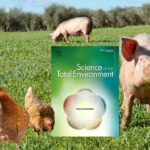
Calls for tenders for work on nanos at European level
The European Chemicals Agency (ECHA) is about to launch 3 studies on nanos.
ECHA is putting the turbo on nanos: it has just issued three calls for tenders for work on nanos and their associated risks.
A review of knowledge on nano-additive plant protection products and fertilizers
The European Chemicals Agency (ECHA) has published a first call for tenders to conduct a review of knowledge on nanomaterials in plant protection products and fertilizers. Potential providers have until March 1, 2023 to express their intent to respond, and then until March 17, 2023 (date to be confirmed by ECHA) to detail their proposal.
This topic was proposed by AVICENN and other European NGOs
This study topic had been proposed by AVICENN and co-signed by CIEL, Client Earth, EEB and HEAL in July 2022, in the framework of a call for topics organized by the European Observatory of Nanomaterials (EUON). The commissioned study shall:
- collect, analyze and organize information on nano-additive pesticides and fertilizers for agriculture.
- draw general conclusions about the potential risks associated with them and the challenges associated with testing these products.
- evaluate and discuss the adequacy of the current tools and regulatory framework to ensure the identification and safety of these substances and products.
There is indeed a worrying lack of knowledge about the use of nanos in the agricultural sector and the associated risks. Agriculture is the sector of use that comes first in the French r-nano register (in terms of number of declarations; for the volume, the information does not exist) and is the subject of many nano research and development efforts. However, these nanos are currently not subject to any [nano] labeling obligation and very few studies explore the potential limits of these substances, the health risks for agricultural workers, the risks of environmental contamination or the risks for the health of final consumers.
To be continued…
A review of knowledge on the release of nanos from products that contain them
A second call for tenders is planned by ECHA for a study on the release of nanomaterials from articles and products containing them and on the potential toxicity of the released nanoparticles. The objective of the ECHA-commissioned study is to review and collect data on:
- the way and the forms in which these nanos are released,
- their fate after release and the associated (eco)toxicological issues.
The deadline for expressions of interest is March 6, 2023.
Understanding and assessing the propensity of nanos to detach themselves from the products and substrates to which they are supposed to be attached (during use or when these products are altered throughout their life cycle) remains a major challenge in nanos risk assessment. At present, it is difficult – if not impossible – to get a precise idea of the level of exposure to nanos among consumers of products containing them.
The Renaame project in France and Belgium, funded by the French authorities, on the release of nanos by masks is a step in this direction. This type of project should be replicated to study the release of nanos by all the other products (food, packaging, cosmetics, textiles, paints, etc). This is particularly important since there are regulatory issues at stake: nanoparticles of titanium dioxide grafted on mica plates in cosmetic products are about to be excluded from the definition of nanomaterials in the future Cosmetics Regulation (and therefore from the obligation of [nano] labeling) on the grounds that they would be “attached” to the mica plates… without any proof today.
Scientific literature reviews but no new data…
Unfortunately, these two studies will mainly consist of scientific literature reviews based on existing public information, and do not undertake the additional research needed to fill the gap in data and knowledge regarding nanos applications and their associated risks.
When will there be real dedicated funding for this type of research in order to address societal questions and concerns on the subject?
A third call for tender (already launched) on nanos risk assessment in REACH
In the context of the upcoming revision of the REACH regulation, another call for tender has also been launched by ECHA to carry out work on the risk assessment of nanomaterials based on their grouping according to toxicological criteria.
REACH is still a very inefficient system for the supervision of nanos marketed in Europe. The main objective of the study commissioned by ECHA is therefore to come up with a set of grouping criteria for a potential revision of the registration and evaluation of nanos in REACH.
The challenge is great: nanomaterials are particularly difficult to group together (compared to other conventional chemicals) because more parameters need to be taken into account to demonstrate structural similarity between two nanomaterials, even though their physicochemical properties evolve throughout the life cycle.
To be continued…

Our information sheets to go further
Upcoming Nano Agenda

- International conference on metallic nano-objects for experts working in the interdisciplinary field of metallic nanoparticles, with a particular emphasis on nanoparticle synthesis and characterization, plasmonics, optics and photonics, catalysis, biomedicine, electronics, and nanoparticle recycling
- Organizers / Partners: CNRS, Bordeaux University, Bordeaux INP, ICMCB, CRPP, CBMN, ISM
- Website: https://mno2026.sciencesconf.org
- Toxicokinetics: the fate of chemicals in the body” training course:
- the different routes of entry for toxic products
- the importance of toxicokinetics in preventing substance toxicity,
- xenobiotic absorption, distribution, metabolism and elimination
- nanoparticle toxicity
- Organizer: Association Toxicologie Chimie (ATC)
- Date: March 26, 2026
- Speaker: Nicole Proust (Research Engineer, CNRS Honorary Research Director, Palaiseau)
- Website: www.atctoxicologie.fr/…

- E-learning program: a 2-hour awareness-raising session aimed at personnel potentially exposed to nanomaterials at the workplace, heads of laboratories or facilities where nanomaterials are handled, safety coordinators or engineers.
- Organizers: INSTN Grenoble (CEA)
- On the program:
- 1 – Introduction, definition and characteristics of nanomaterials
- 2 – Toxicity of nanomaterials: the state of knowledge
- 3 – Metrology and characterization of nanomaterials
- 4 – Prevention and protection against nanomaterials in the workplace
- 5 – Quiz: assessment of learning outcomes
- The 2-hour course can be viewed for one month from the date of registration.
- Website: https://instn.cea.fr/…risques-lies-aux-nanomateriaux…



